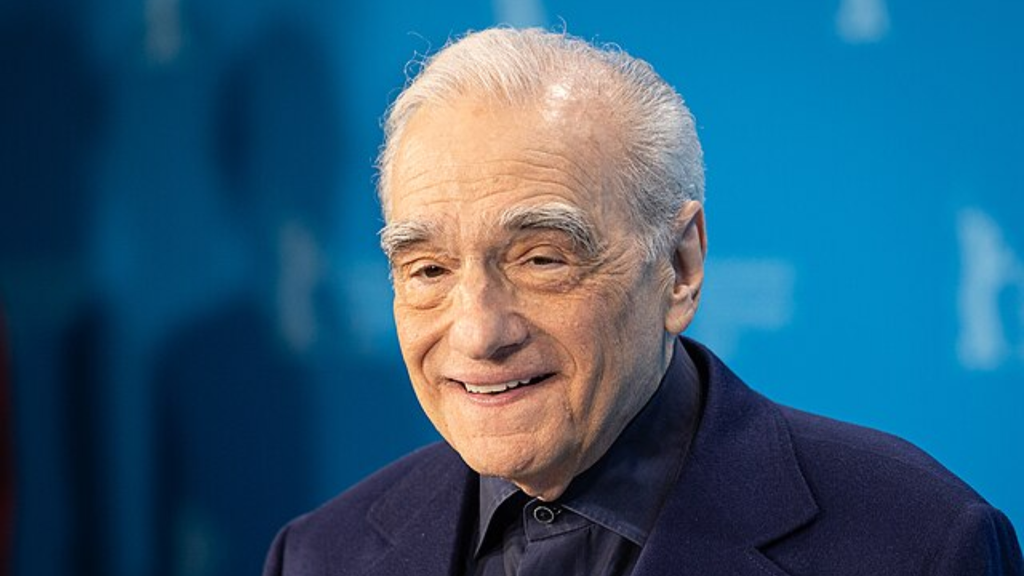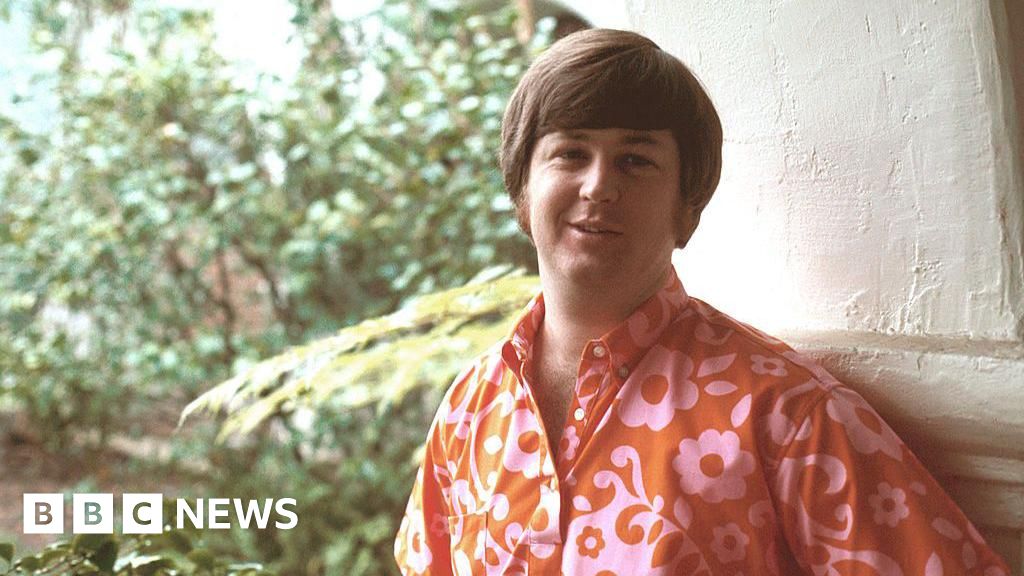Sizewell C pledged to lower bills but will take at least 10 years
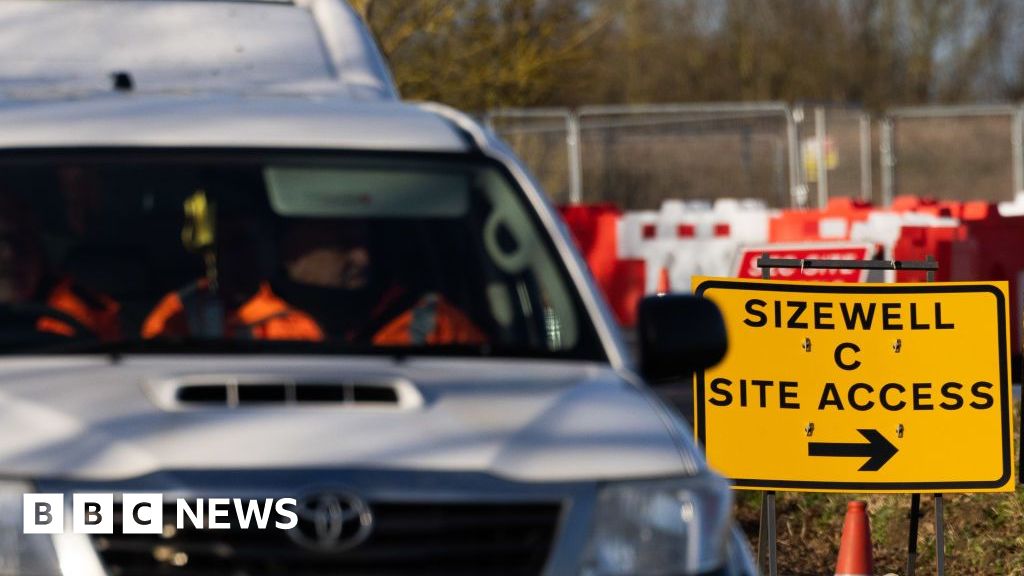
No blank cheque for Sizewell C nuclear project, says PM
Michael Race, Simon Jack & Alice CunninghamBBC Business & BBC Suffolk
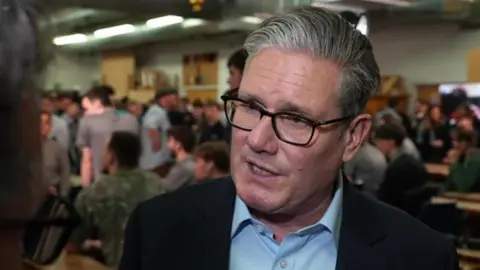 BBC
BBCThe prime minister has said he is "not writing a blank cheque" to pay for a new UK nuclear power plant, after the government announced it would commit £14.2bn to the project.
Sir Keir Starmer told the BBC the development of Sizewell C on the Suffolk coastline would create 10,000 jobs over the next decade, and provide energy security and independence for the country.
The government has announced the cash injection in a bid to kickstart investment in a new nuclear plant, but the Sizewell C project has faced opposition over its potential cost and environmental impact.
The PM said the plant would "bring down bills for millions of people across the country".
However, it will take at least 10 years to complete the project with power beginning to be generated in the mid-2030s, according to Energy Secretary Ed Miliband, who identified Sizewell as a potential site for a new nuclear reactor in 2009 when Labour was last in government.
'Control over our energy'
UK household bills have increased substantially in recent years, sparked by Russia's invasion of Ukraine sending global gas and oil prices up over supply fears, especially across Europe.
Sir Keir said the government investment in Sizewell was "setting out a course for the future which means that we have control over our own energy" and would ensure that Russian President Vladimir Putin "cannot put his boot on our throat" with energy prices.
Building a nuclear power station is a huge engineering and financial project. The UK currently has nine nuclear reactors in operation, but the plants are ageing and eight of them are due to close by the end of this decade. The newest nuclear reaction - Sizewell B - came into service some 30 years ago.
Last year, nuclear power provided about 14% of the UK's electricity, which is significantly less than what was generated by wind (30%) and gas (26%).
But the government has insisted that generating more power from nuclear can cut household energy bills, create jobs, boost energy security so that the UK is less reliant on other countries, and also tackle climate change.
It will hope the backing of Sizewell C will lead to an influx of private investment, which is required for building work to get under way, and is part a wider effort to attract investment into the UK to boost economic growth.
Rolls-Royce nuclear deal 'will safeguard city jobs'
The funding announced on Wednesday, which includes £2.7bn already pledged in the Autumn Budget, only covers five years of a decade-long project.
When this was put to Sir Keir, he said the government had been "absolutely clear" about what it wants to achieve.
"I want to invest in our future. China [and] France are doing this, and I want to be right up there with them."
'Private investment not complete'
The government has said Sizewell C will generate enough power for some six million homes.
Its construction will see 10,000 jobs created, and once operational, it is expected to employ 900 people and be in service for 60 years.
However, Alison Downes, director of pressure group Stop Sizewell C, said ministers had not "come clean" about Sizewell C's cost, because "negotiations with private investors are incomplete".
There have been several different funding announcements made about Sizewell C over many years by different governments.
The Department of Energy Security confirmed to the BBC that with Wednesday's £14.2bn investment announcement, a total of £17.8bn of taxpayers' money had been put towards the project to date.
A final decision on the funding model will be taken by the government later in the summer.
Sizewell C has previously said the project was expected to cost £20bn in total, but industry sources have estimated it could cost double that.
EDF, the state-owned French company which is building the new power plant, rejected the claims saying a £40bn figure was "not accurate".
EDF is also building a new nuclear plant at Hinkley Point in Somerset, which it did accept would cost more than £40bn, compared to a 2022 estimate of £26bn.
Hinkley Point is expected to switch on in the early 2030s, which will be over a decade late and having cost billions more than originally planned.

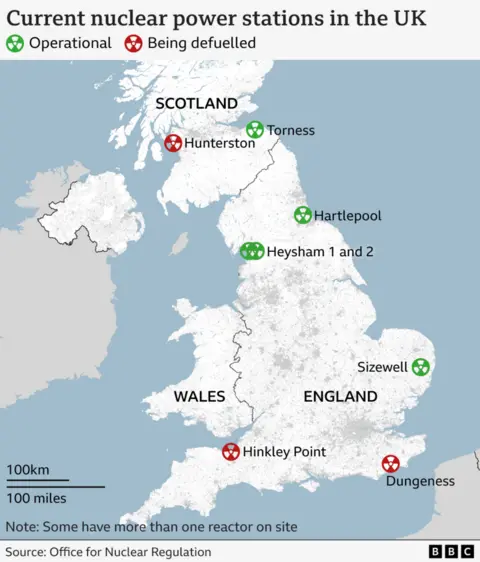
Trade unions welcomed the government's investment, with GMB general secretary Warren Kenny saying Sizewell C would provide "thousands of good, skilled, unionised jobs".
Mike Clancy, general secretary of the Prospect union, added: "New nuclear is essential to achieving net zero, providing a baseload of clean and secure energy."
Sizewell C is to sit immediately north of Sizewell B, which began generating electricity in 1995.
Sizewell A opened in 1967 but it stopped generating power in December 2006 and a lengthy decommissioning process is ongoing.
What's Your Reaction?
 Like
0
Like
0
 Dislike
0
Dislike
0
 Love
0
Love
0
 Funny
0
Funny
0
 Angry
0
Angry
0
 Sad
0
Sad
0
 Wow
0
Wow
0



















